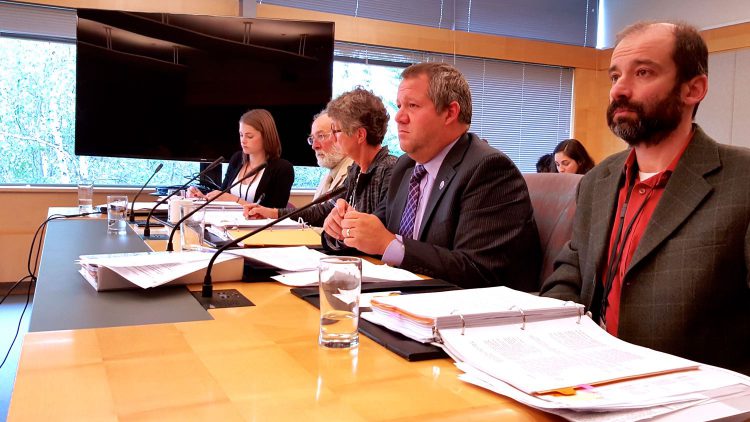After three decades, the Northwest Territories is dusting off its antiquated Mental Health Act and preparing a new one.
Health minister Glen Abernethy appeared in front of MLAs on Monday to defend his bill introducing a new act. It’s a bill his department hopes to hurry into law before this fall’s election.
Abernethy claimed the new act, should it come to pass, will increase the number of professionals who can examine and assess individuals – in turn, increasing services for residents of small communities.
He also said the act will provide “greater ability to intervene before a person reaches the point of causing harm”. The minister compared that to the current act, in force since 1985, which he believes is letting residents “fall through the cracks”.
In a three-hour question-and-answer session on Monday, MLAs wanted the minister to outline how the new act will do more for young people in the Northwest Territories.
Recent high-profile cases, such as that of 19-year-old Timothy Henderson, have highlighted a range of perceived failings in the territory’s current mental health system.
Abernethy said the bill caters for everyone, regardless of age, but he added: “Legislation isn’t the only thing that needs to be done.
“In Canada and the NWT there are some real shortages around programs and services for youth.”
In an apparent allusion to Henderson’s case, Abernethy said he had called for an independent investigation into one particular case “to help us come up with some options, program ideas and improvements to the system for youth”.
Background: Health minister orders review of Timothy Henderson’s death
MLAs were not entirely satisfied. “I do have a concern that we are not specifically addressing youth and adolescents,” said Frame Lake MLA Wendy Bisaro.
Bisaro worried about the options for parents of adult children with mental health disorders – such as Henderson’s family, who felt that the system left them unable to help their child.
In a desperate situation, said Bisaro, “There doesn’t seem to be a lot of opportunity for family to assist their relative. Where does the act allow for me, as a parent, to ensure my adult child gets the help they need? I’m not sure that it’s there.”
Abernethy’s reply suggested his bill is unlikely to fundamentally alter the status quo when it comes to that grey area – where an adult child’s right to privacy can leave parents feeling locked out of their care.
“Parents can only make decisions if the parent has been designated as the substitute decision maker,” he responded.
“Patients must be assessed to determine whether or not they are mentally competent to make treatment decisions.
“If an individual is deemed mentally competent, we cannot breach that individual’s rights or share information with anyone else. We can share it with that individual, and that’s it.”
In full: Read the proposed new Mental Health Act (pdf)
The process of admitting people, voluntarily or involuntarily, generated a number of questions. Abernethy said the act will “remove some of the paperwork and administrative burdens” associated with admissions, such as staff having to request ministerial approval before admitting an individual against their will.
The act also forms a new review board, formed of lawyers, practitioners and laypeople, which will review any concerns raised by patients, families or staff.
A further measure is the introduction of assisted community treatment, or ACT, which allows involuntarily admitted patients to take leave from a facility and receive treatment and supervision in their community.
“They will still be considered an inpatient for the most part,” explained Abernethy, “taking medications, attending appointments, taking advantage of programs. It doesn’t mean they’re going out into the community to be left alone.
“The patient is on leave – they are still in the system and not forgotten.”
Norman Yakeleya, MLA for the Sahtu, took Abernethy to task for what he found to be legislation lacking appreciation for, and understanding of, Aboriginal culture, values and practices.
“That is a core piece of the legislation that doesn’t seem to get attention,” said Yakeleya.
Suggesting elements of the bill represented “a slap across the face of our people,” Yakeleya said it was “driven to a western style of how you look at mental health”.
Abernethy said a number of Aboriginal leaders had been consulted in the bill’s preparation, but he told Yakeleya his department was open to more input.
The bill now goes on a tour of the territory for further public hearings, starting with Inuvik on Tuesday evening. There will also be stops in Norman Wells, Tulita, Fort Smith, Fort Resolution and Fort Providence.




